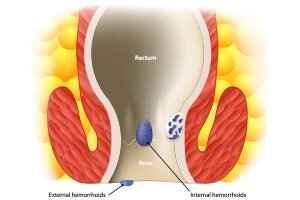Hemorrhoids or Piles
Types, causes, symptoms, treatments and diet
What are hemorrhoids or piles?
Hemorrhoids, commonly known as piles, is a condition where the veins in the anus and lower rectum get swollen and dilated. Depending on their location, hemorrhoids may be classified as internal or external depending on whether inside the rectum or below the skin around the anus. Hemorrhoids are very common and roughly three out of four adults may have them at some point of time. Yashoda Hospitals provide some of the best treatment for piles in Hyderabad.





 Appointment
Appointment WhatsApp
WhatsApp Call
Call More
More